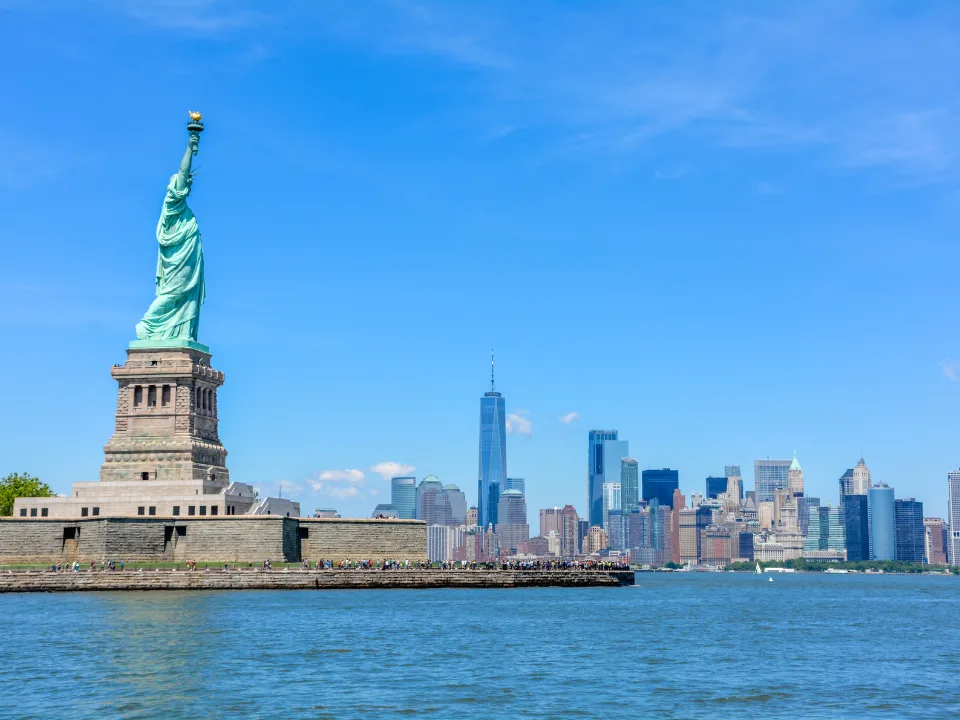Inside the Collapse of SVB
SVB, a key funder of tech and crypto startups, collapsed Friday, with $2.6B in CRE loans. Largest US bank failure since 2008.
Together with
Good morning. It’s been a tumultuous week with two of the biggest bank failures in US history occurring. In this edition, we will analyze the events and their implications for the commercial real estate industry and broader economy.
Want to diversify your portfolio with investments in fine wine and rare spirits? Check out today’s sponsor, Vint.
BANK COLLAPSE
Sizing up Silicon Valley Bank’s CRE Exposure
Silicon Valley Bank (SVB), a major funder of tech and crypto startups, collapsed on Friday, marking the biggest U.S. bank failure since the Global Financial Crisis of 2008. But it isn’t just the tech sector that’s on the hook, SVB had approximately $2.6B of CRE loans on its books.
What happened: On Friday, Silicon Valley Bank (SVB) suffered a run on its deposits due to concerns about its solvency after failing to raise $2B in capital to cover losses. As a result, the Federal Deposit Insurance Corporation (FDIC) took control of the bank’s assets and deposits. While insured deposits are expected to be available soon, it remains unclear when the uninsured deposits will be freed up.
CRE exposure: SVB’s investment securities portfolio includes $1.3B in affordable housing projects, $14.4B in commercial mortgage-backed securities, and $2.7B in nonmarketable equity securities. In line with its goal to focus on innovative industries such as technology, life sciences, healthcare, and venture capital, SVB acquired Boston Private, a wealth management, trust, and banking services provider with real estate investments worth $900M in 2021.
Shockwaves: The collapse of SVB has raised concerns about the possibility of further bank failures, and market chatter suggests that it could impact the Federal Reserve’s rate hike train. Billionaire hedge funder Bill Ackman believes that a bailout should protect depositors and not equity holders or management. While the situation appears to be unique, there remains a risk that SVB’s loans and deposits will be reclassified and sold.
➥ THE TAKEAWAY
What happens now? According to US authorities, depositors of SVB can now access all of their funds as of today. Additionally, the Federal Reserve has unveiled a new program called the “Bank Term Funding Program” which offers one-year loans to banks with more lenient terms than usual. Nevertheless, the collapse of SVB and its potential impact on the banking sector has raised concerns about the stability of the financial system. Expect the story to continue to make headlines.
SPONSORED
Diversify With Wine & Spirit Investments
For hundreds of years the ultra rich have been investing in real assets like art, real estate, and fine wine and rare spirits. Why? Well, historically these assets have provided a track record of returns and provided exposure to diversification with non-correlated assets.
Traditionally, fine wine and rare spirits as investment had been incredibly difficult to access. Large up front costs, antiquated and fragmented markets, and a landscape of infromation that was virtually incomprehensible to anyone not in the Wine world.
Vint makes it possible to diversify your investment portfolio with shares of sec-qualified offerings of fine wine and rare spirits. With over 58 offerings sold out and thousands of investors they are building a new asset class that all investors, not accredited and accredited, can access.
In 2022, they exited 6 offerings on a partial or complete basis and generated an average of 28.3% net annualized returns across those sales.*
✍️ Daily Picks
-
Coming soon: Fort Worth is anticipating the opening of several highly anticipated hotels as North Texas leads the country with over 175 hotels currently in the construction pipeline.
-
Default risks: A hedge fund manager who profited 119% from shorting shopping mall debt is now anticipating further struggles in the US commercial office market.
-
Simply shocking: Construction job openings plummeted by 49% in January, from a record high in December, with the industry experiencing the biggest decline in job openings of any industry tracked by the BLS.
-
Close the Gap: Gap Inc. is overhauling its business to reverse years of losses in its clothing brands by slowing store openings and shaking up executive ranks.
-
Systemic risk: In an effort to prevent the banking crisis from spreading, U.S. regulators closed down Signature Bank, a major lender in the cryptocurrency industry, on Sunday.
-
REITs remain resilient: REITs had a solid Q4 2022 despite rising interest rates and high inflation, with FFO up 10.1% YoY and NOI up 6.8%
📈 Chart of the Day

The second and third largest bank failures in U.S. history have occurred over the past week.
-
Washington Mutual Bank (2008): ~$300 billion in assets
-
Silicon Valley Bank: $209 billion
-
Signature Bank: $110 billion
🎁 Tell Friends → Get Merch
Share the CRE Daily with colleagues and friends, and when they sign up, you’ll earn exclusive content and free swag.
Or copy this custom referral link: https://newsletter.credaily.com/subscribe?ref=PLACEHOLDER

You currently have 0 referrals, only 3 away from receiving your next milestone: Back of the Napkin Multifamily Deal Screener.
What did you think of today’s newsletter? |
*Investment involves risk. See vint.co/disclaimer



















